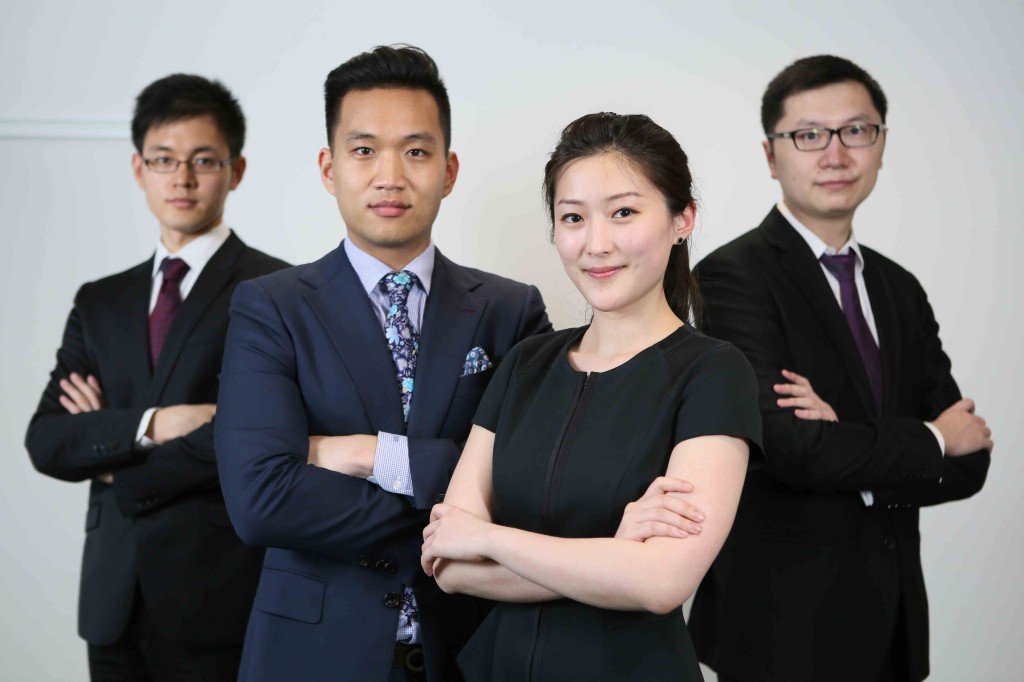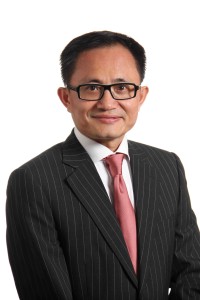 Launched in Beijing over 22 years ago with a staff of just two, KPMG China now employ around 9,000 people. When they started doing business in China the market for professional services was completely different to today. Carl Hayward met with Edwin Fung, Senior Partner, Beijing, and Senior Partner, Northern Region, KPMG China, to discuss the challenges that they face and how they have had to evolve to remain competitive in this rapidly changing market.
Launched in Beijing over 22 years ago with a staff of just two, KPMG China now employ around 9,000 people. When they started doing business in China the market for professional services was completely different to today. Carl Hayward met with Edwin Fung, Senior Partner, Beijing, and Senior Partner, Northern Region, KPMG China, to discuss the challenges that they face and how they have had to evolve to remain competitive in this rapidly changing market.
Fung began his career with KPMG in his native Hong Kong in 1986 when he was a fresh graduate. He spent two years with KPMG in New York from 1993–1995, gaining international experience, before moving back to Hong Kong. At this point China’s rapidly changing markets were beginning to draw serious global attention, and Fung himself was becoming increasingly engaged with the Mainland through his work. He finally decided to move to Beijing in 2006 in order to understand the market more clearly.
Twenty years ago, Fung says, foreign players offering professional services in China dealt mainly with multinational companies (MNCs). For companies like KPMG, if you had a brand and good services you had little competition in the market, but times have changed a great deal. Today, while large state-owned enterprises (SOEs) dominate certain sectors, the emergence of privately-owned enterprises (POEs) is reshaping the market landscape and this has led professional service providers to constantly adjust their service portfolio in order to remain competitive.

Edwin Fung: “[young talent] should look to stay for five to ten years. If they want to become a professional this is what they need to commit to.”
The advantage that KPMG holds is an established network that has been built up over the past 100 years, as well as the acquired knowledge, experience. This, says Fung, is how KPMG creates its uniqueness in the market.
One of the major challenge KPMG faces is how to adapt its services to the rapidly-evolving market, and how to adjust their strategy depending on which area of China they are operating in, as well as what type of customer they are dealing with.
“I would say in Beijing up to 65 per cent of our customers are SOEs, while in Shanghai around 60 per cent are MNCs. There is also a significant variation of the maturity of the companies across China. When your customer profile is different you need to have different market strategies and you need to tailor your service offering.”
In such a vast and varied market, Fung says that value can be created by positioning yourself smartly and not by taking the one-solution-fits-all approach.
“I always tell my staff that we are not McDonald’s. If you set yourselves up that way, customers come in and they know what they want and they know the price, and more importantly they ask for taocan, the set menu. That is not what we want,” explains Fung.
Instead, KPMG set themselves up as a five-star restaurant. “When our customers come in they don’t necessarily know exactly what they want, so our job is to have a conversation with them to see how they’re doing and how they’re feeling. We will then tailor a menu that fits best their needs.”
This leads Fung to the next challenge—finding and retaining talent with the necessary skills and experience.
 Holding on to talent
Holding on to talent
In the talent war there is more at stake than simply finding fresh recruits, in fact this is just one of many challenges that KPMG face. Another is finding and recruiting experienced hires—people who have particular expertise in certain sectors, in certain products or services. The market has grown so quickly, but, says Fung, the talent pool has not caught up.
The next real challenge is retaining talent. Fung says that younger generations, particularly the new wave of post-90s graduates, do not view careers in the same way that their predecessors did. Of the 1,300 annual recruits from universities, and other experienced hires of around 200 per year, Fung says they experience turnover of between 30 to 50 per cent.
The periodic counselling discussions, and also exit interviews, are showing that many young people are looking for change and want different experiences. They are not only thinking about a career, they are also thinking about having different, richer life experiences.
“We need to make sure we engage with these people and make them understand that it is not ‘just a job’. We need to look at how, as a firm, we can help them to grow and develop. We need to make them see that after graduation they should look to stay for five to ten years. If they want to become a professional this is what they need to commit to,” says Fung.
Fung believes that KPMG’s biggest achievement in China has been the creation of their talent pool. Over 80 per cent of their China audit partners are local and started their careers with KPMG, meaning they have grown up with the firm. How the partners engage with the market is crucial to KPMG’s success.
Reforms and influence
Of the reform programme announced following the Third Plenum, SOE reform would have the biggest impact on KPMG’s business in China, although Fung is unsure of how quickly this could feasibly happen.
“It is the right thing to do, but it is not easy. I do think that it is a set of very good principles from the top though,” he says
Auditing is one of the services that KPMG provides to their SOE clients, but as the process reform and opening up continues SOEs may need more tax and advisory services, which may create additional opportunities.
Another factor that will influence the market is the continued emergence of POEs. Mega-companies like Baidu, Alibaba and Tencent (BAT as they’re collectively known) are having a huge impact on the internet, on the logistics industry, in cultural media, in banking, finance and insurance. If SOEs reform over the next five to ten years, this will certainly have a big impact, but by that time these POEs will have also had another five to ten years continued development. If more ‘BAT companies’ emerge the structure of the market will be significantly transformed.
A bright future
Fung feels very positively about the China market, particularly the service industry, as the tone has been set from the top that China will not continue to be a cheap-labour manufacturing base. His ambition is for KPMG to be “the best, not the biggest”, and he feels the market is large enough to accommodate all players, so KPMG needs to concentrate on the areas that it is best at.
It is appropriate that Fung concludes by bringing the conversation back to people: “I want our partners to be ‘family doctors’ who care about our clients and go and see them regularly to understand how they are doing and to gain their trust. This is exactly what we need to do in the service industry, and I am confident because this is exactly how we are developing our talent.”
KPMG is a global network of professional firms providing Audit, Tax and Advisory services. We operate in 155 countries and have more than 155,000 people working in member firms around the world. KPMG China has 16 offices, including KPMG Advisory (China) Limited, in Beijing, Chengdu, Chongqing, Foshan, Fuzhou, Guangzhou, Hangzhou, Nanjing, Qingdao, Shanghai, Shenyang, Shenzhen, Tianjin, Xiamen, Hong Kong and Macau, with around 9,000 professionals.


Finding right talents is not a challenge faced by MNCs alone. I recently interviewed an European enterpreneur who opened her own workshop in 2009 in BJ. I asked her what her biggest challenge was as an EU SME in China. After five years in China, she told me her biggest challenge was still to find the right employees.
Hi There,
I like to read your Issue very much.
Apollo Zhong
13501172857